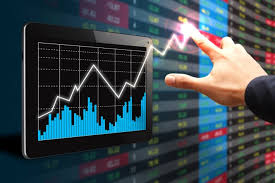
Futures Trading 101: A Beginner’s Review Guide
Futures trading is a monetary tool that allows brokers to speculate around the long term value movements of assets including merchandise, currencies, and fiscal equipment like stocks and indices. Here is everything you should find out about futures trading review:
1. What exactly are Futures?
Futures are consistent contracts to get or promote an asset at the predetermined selling price and date in the foreseeable future. These contracts are dealt on regulated swaps, delivering liquidity and transparency to investors.
2. How Futures Trading Functions
In futures trading discount, consumers (long roles) and vendors (short placements) accept to deal with a potential date. The cost depends on the marketplace based on provide and desire dynamics, prevailing rates of interest, along with other variables. Traders can profit from the two growing and dropping marketplaces if you take long or quick jobs, correspondingly.
3. Risk and Reward
Futures trading consists of influence, significance dealers can handle a more substantial situation using a relatively little bit of funds. Even if this amplifies probable earnings, in addition, it improves the risk of considerable losses. Danger control methods like cease-decrease requests and appropriate position sizing are crucial for mitigating threats.
4. Market Members
A variety of industry contributors embark on futures trading, which include speculators seeking profit from price changes, hedgers hoping to control undesirable price actions, and arbitrageurs exploiting selling price differentials between connected belongings.
5. Popular Futures Market segments
Futures commitments can be found across a wide range of tool courses, which include products like rare metal, oils, and gardening merchandise, currencies, stock exchange indices, and rates. Every single market has its own distinctive attributes and factors impacting price movements.
6. Legislation and Oversight
Futures trading is subjected to rigorous control and oversight by governmental physiques and swaps to ensure fair and clear trading practices. Regulatory actions aim to safeguard marketplace sincerity, stop manipulation, and protect investors’ pursuits.
7. Tips and techniques
Productive futures trading requires a comprehensive idea of marketplace dynamics, specialized evaluation, and fundamental aspects impacting advantage price ranges. Dealers use numerous strategies such as craze following, suggest reversion, and distribute trading to maximize market place options.
8. Advantages and Disadvantages
Futures trading delivers several positive aspects, which include liquidity, selling price openness, and diversification opportunities. However, additionally, it holds natural threats, such as leverage-stimulated losses, industry unpredictability, and geopolitical elements impacting tool costs.
Verdict
Futures trading is actually a adaptable fiscal device providing opportunities for profit in varied marketplace situations. Nevertheless, it will require cautious risk managing, careful research, and constant understanding how to reach your goals in this vibrant setting.